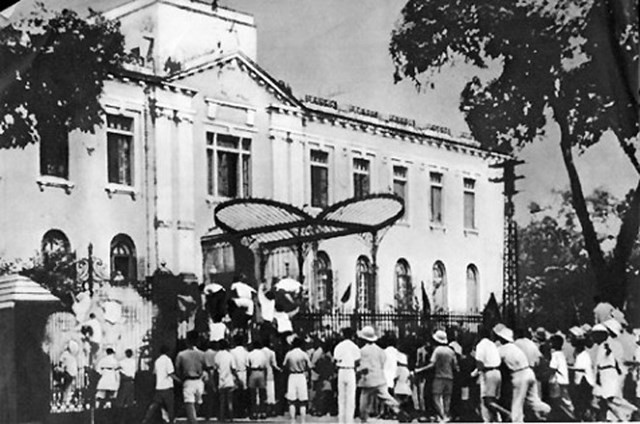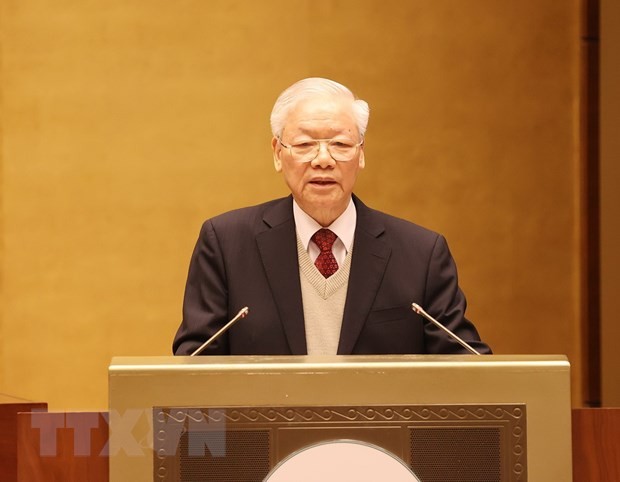(VOVWORLD) -The August Revolution conducted by the Vietnamese people 77 years ago (August 19, 1945) broke the bondage chains imposed for 80 years by the French colonialists and established the Democratic Republic of Vietnam. From that foundation, the Vietnamese people have resolutely defended their independence and developed a country which now has a global position and is deepening its international integration.
 On August 19, 1945, the people's forces stormed the Tonkin Palace in Hanoi. Photo: daidoanket.vn On August 19, 1945, the people's forces stormed the Tonkin Palace in Hanoi. Photo: daidoanket.vn
|
Favorable international environment
After the Revolution in August 1945, the Vietnamese people rose from the status of slaves to masters of their own destiny with full freedom and autonomy. However, given its economic and military weakness and limited foreign relations, the Communist Party of Vietnam, led by President Ho Chi Minh, used diplomacy to protect Vietnam’s revolutionary achievements and the people’s government to serve the cause of nation building.
Having learned from the August Revolution to seize opportunities, Vietnam has identified globalization as its best path to modernization. Vietnam has expanded and elevated its diplomatic relations with all its neighbors, major countries, important partners, and traditional friends. Vietnam has established diplomatic ties with 189 out of a total of 193 UN members and is an active and responsible member of more than 70 international organizations and forums, including the UN, ASEAN, APEC, ASEM, and the WTO.
 Party General Secretary Nguyen Phu Trong spoke at the National Foreign Affairs Conference, December 2021. Photo: VNA Party General Secretary Nguyen Phu Trong spoke at the National Foreign Affairs Conference, December 2021. Photo: VNA |
The Party has relationships with 247 political parties in 111 countries. The National Assembly has relationships with the National Assembly or parliament of 140 countries and attends major international parliamentary forums. The Government's external activities are enhancing political trust and interweaving interests with partners.
Party General Secretary Nguyen Phu Trong addressed the National Foreign Affairs Conference last December: “Vietnam has created a favorable international environment and mobilized external resources to promote industrialization, modernization, and socio-economic development. From a country with a centrally-planned economy under siege and embargo, Vietnam has become a country with a socialist-oriented market economy extensively integrating into the world. 30 years ago Vietnam had trade relations with only 30 countries and territories, now with 230 countries and territories. Total import-export turnover is about 120 times higher than in the early years of the doi moi (renewal) period. Vietnam has attracted more than 400 billion USD in foreign direct investment (FDI).”
Peace and cooperation for development
Vietnam has fulfilled its international responsibilities as a non-permanent member of the UN Security Council, rotating chair of ASEAN, and host of the ASEAN Summit, ASEM summit, APEC Summit, and World Economic Forum on ASEAN. Vietnam has sent hundreds of officers and soldiers to the UN peacekeeping force in Africa. Its voice and initiatives have received international support, resulting in Vietnam's higher global position and reputation. As Professor Dr. Vu Minh Giang said: “No other people in the world were ruled and assimilated and endured hardship but never gave up their goals like the Vietnamese. Vietnam has firmly overcome headwinds and has now become a respected country in the international arena. The future of our nation is full of bright prospects. This is no longer just an aspiration, but seems to be in the hands of the Vietnamese.”